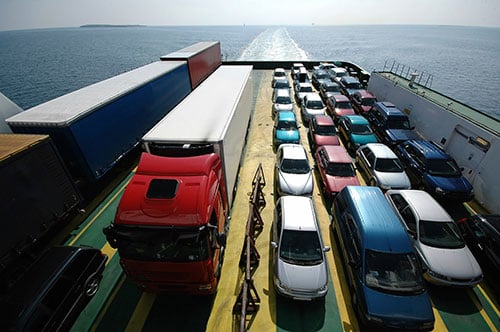
AIAG’s Supply Safe Program, hailed as the “next evolution in border security,” reduces redundancy and strengthens security through an united industry effort.
In collaboration with several member companies, AIAG has developed a common system for automotive importers and their supply chain partners’ suppliers to help them comply with Customs Trade Partnership Against Terrorism (C-TPAT) requirements. C-TPAT is a government-sponsored initiative aimed at strengthening and improving international supply chains and improving border security.
“The Supply Safe program is the next evolution in border security for the industry,” says Jeff Gifford, C-TPAT and NAFTA compliance manager at Magna International. “The collaboration on this is historical. Everybody is taking a significant look at their supply chain. Now we’ll have a standardized approach of reporting and how to resolve any deficiencies.”
The challenge with C-TPAT is that a separate set of questions and associated corrective actions have been developed by each OEM. This causes tremendous duplication of effort throughout the international supply chain and forces suppliers that have multiple OEM customers to answer each OEM questionnaire individually.
Mark Argenti, C-TPAT and export compliance manager for Fiat Chrysler Automotive, says feedback from several of his organization’s business partners confirmed that other OEMs were requiring them to fill out similar versions of the same survey. “Supply Safe reduces redundancy. It strengthens security within the automotive supply chain by developing a solution that presents a united commitment by the automotive community to work together,” Argenti notes.
The AIAG Supply Safe Supplier Security Assessment Platform offers the first common industry C-TPAT questionnaire along with associated corrective actions. Questionnaires are tailored for each type of supply chain partner including highway, rail, and ocean carriers, customs brokers, freight forwarders, 3PLs, etc.
Benefits include:
- OEMs and their supply chain partners have a common process to request, compete, and evaluate supply chain security.
- Suppliers that have multiple OEMs as customers need only answer one questionnaire.
- There is no cost to supply chain partners.
“C-TPAT is a standard topic of discussion among OEMs with interest in customs practices and supply chain security,” says Diane DeJarnett, customs and trade compliance manager for Toyota Motor Sales, U.S.A. “The Supply Safe Supplier Security Assessment platform reduces the burden on our suppliers and business partners by gathering information globally through a central source, which creates efficiencies for parties involved.”
“Tools like Supply Safe that facilitate traceability, communication, and reduce complexity and duplication are extremely important in a global supply chain,” says Bill Hurles, executive director of global supply chain for General Motors Corp.
U.S. CBP Update
U.S. Customs and Border Protection is working on an update to C-TPAT Portal 2.0 – Phase III to harmonize with the Partners in Protection (PIP) cooperative program. Changes include:
- Validation report and response activities will migrate into a single interface.
- Harmonization of highway carriers with PIP
- New international / mutual recognition page
For more information, email AIAG’s director of supply chain products & services, Lang Ware at lware@aiag.org or call (248) 213-4662.


